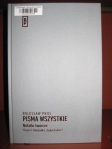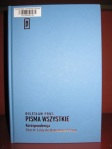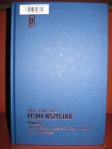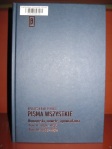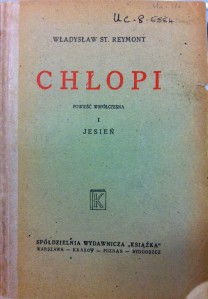Our long-suffering Polish suppliers took a rush of orders in late June with their usual good grace, despite the need to supply them before the end of our financial year little more than a month later. Among the resulting new arrivals is a particularly exciting addition – the two-volume Wygnanie i powroty : publicystyka rozproszona z lat 1951-2004, a collection of Nobel laureate Czesław Miłosz’ articles in the press, one of whose editors and contributors is Dr Stanley Bill of MMLL’s Slavonic Studies. The publication was many years in the making, as Miłosz pieces published all over the world were carefully brought together. The significance of the nearly 2,000-page-long set means it has been granted what is still a pretty rare post-lockdown open-shelf classmark. The vast majority of our new arrivals continue to go into the closed but borrowable C200s class, to help us deal promptly with incoming books while still having our numbers in the physical office significantly capped .
 Stan has also co-edited Światowa historia literatury polskiej (A world history of Polish literature), published at the end of 2020, which I am hoping to get as an ebook but will buy in print if an electronic version suitable for institutional purchase doesn’t appear soon enough.
Stan has also co-edited Światowa historia literatury polskiej (A world history of Polish literature), published at the end of 2020, which I am hoping to get as an ebook but will buy in print if an electronic version suitable for institutional purchase doesn’t appear soon enough.
Wyganie i powroty appeared on a trolley full to bursting of Polish arrivals. Among them were the following (pictures of front covers are provided at the end). Continue reading “Completing Miłosz, and other new Polish books : the August 2021 Slavonic items of the month”




